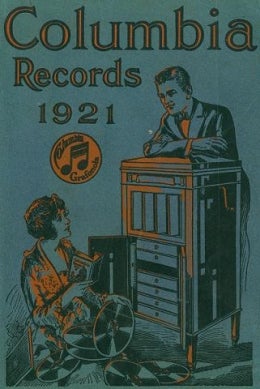
On January 1, 2022, an estimated 400,000 sound recordings published before 1923 will enter the public domain thanks to a law passed in 2018. This is significant because, until 2022, no sound recording has entered the public domain due to copyright expiration.
The UC Santa Barbara Library has already digitally preserved over 60,000 of those recordings from its collection, which will now be freely accessible to anybody, for any purpose, in high-resolution formats.
“Due to our longstanding preservation efforts, UCSB is set to release more digitized content into the public domain than perhaps any other library or archive,” said David Seubert, UCSB Library Performing Arts Curator. “Once recordings fall out of copyright and enter the public domain, copyright owners can no longer control or charge for their use, even commercial re-use.”
This major addition to the public domain is the result of one of the biggest reforms to copyright law in decades, the Music Modernization Act (MMA).
The MMA consists of three main pieces of legislation related to copyright law with Title II, the CLASSICS Protection and Access Act, bringing pre-1972 sound recordings into the federal copyright system for the first time since the 1970s.
Sound recordings were protected by individual state laws, but not by federal copyright law, until Congress established federal copyright for sound recordings created after February 15, 1972.
However, Congress left sound recordings made before this date under the protection of the existing mishmash of state laws. Congress passed subsequent copyright laws to enable federal law to eventually preempt state law and routinely extended the maximum copyright for these materials. Until the MMA, pre-1972 sound recordings were not slated to enter the public domain until 2067.
This has long presented problems. Determining the copyright status of a recording required expert research into the various state and federal laws. These complications are part of the reason groups such as the Association for Recorded Sound Collections lobbied Congress to simplify the system.
These efforts led to the passing of the MMA and the imminent 2022 inauguration of the first U.S. public domain for sound recordings.
“UCSB Library Special Research Collections is known for its vast collection of early sound recordings,” said Seubert. “It’s exciting that all of our work to digitize thousands of recordings in the collection will contribute to the numerous additions to the public domain this year.”
For UCSB Library users, this means these recordings can be used as part of research or compositions without worrying about copyright infringement. Additionally, the Discography of American Historical Recordings, a database of master recordings edited by UCSB Library researchers, will be reprogrammed so that users can download the recordings.
The UCSB Library conducts its sound recording digitization work in its state-of-the-art Henri Temianka Preservation Lab with funding from the Henri Temianka Preservation Fund.


